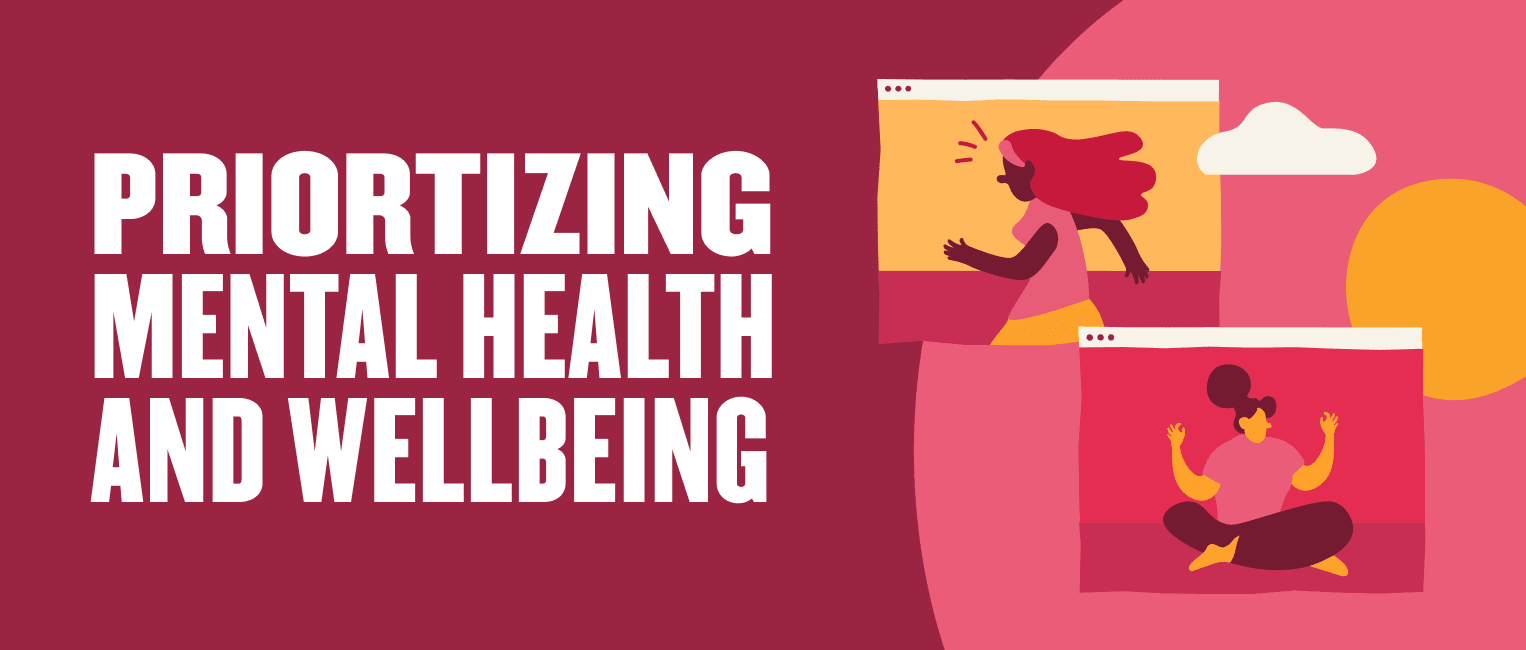According to Mental Health America (MHA), 19.86 percent of adults in the United States–around 50 million people–experienced a mental illness prior to the COVID-19 pandemic. Over half of them aren’t being treated.
May is National Mental Health Awareness Month and is dedicated to raising awareness about the physical, emotional, and mental wellbeing of our community members. Reducing the stigma surrounding those living with psychological or behavioral health issues is key to cultivating healthy communities and company cultures.
The importance of mental health and wellbeing
Mental health and wellbeing are critical to our overall health. They can affect our daily lives and our ability to perform well at work, lead a happy life at home, and connect with other people. Mental health and stress can also affect our physical wellbeing.
Mental resilience and strength depend on maintaining a healthy mindset. Healthy mindsets positively affect your perspective and attitude and can take you further in life–personally and professionally. But believing in yourself can be a challenge. That’s why it’s important to remind yourself every day that you can achieve anything as long as you put your mind to it. It’s also why it’s critical for people to have the support they need from their workplace.
Employee burnout and why it matters
According to a survey conducted by Indeed in 2021, 52 percent of today’s workforce reported experiencing burnout, and that’s up from 43 percent the year before. The stats are grimmer for Millennials (59 percent) and Gen Z (58 percent).
In other words, burnout is real, and it’s negatively affecting our productivity at work and impacting companies’ success. This is why it’s essential for workplaces to prioritize their people’s mental health and wellbeing and support them with the tools to do it.
When people prioritize their wellbeing and feel supported by their managers and the organizations they work for, their productivity tends to increase. Self-prioritization also has a big impact on people’s positive attitudes towards their lives in and out of work.
What can companies do to help improve their people’s mental health and wellbeing?
It’s one thing to say companies should support their people and provide them with the resources to take care of themselves. Putting it into action is another. It can be as simple as encouraging breaks throughout the day and checking in with people to make sure they’re taking enough vacation time to rest and recuperate.
You may have heard companies nowadays offering even more in the form of healthcare benefits, gym stipends, mental health days, etc. Let’s break down some important benefits successful modern companies provide to their people.
- Counseling support: Providing counseling support (by phone, app, online, or face-to-face) can go a long way in improving your people’s mental health and wellbeing. While it might sound expensive and time-consuming, counseling support can be as simple as providing access to online counseling services, or in-person workshops on mindfulness and meditation as a benefit. It can also include virtual events, company-run peer mentorship programs, and adjacent services like backup childcare.
- Therapy: The importance of therapy has arisen in recent years and companies are starting to notice how easy and affordable access to mental health services improves employee wellbeing and productivity. Some organizations have brought onsite counselors on board and give their people a minimum of six therapy visits per year. The result? Reduced stress levels and improved employee happiness.
- Schedule flexibility: Companies are starting to do away with the typical 9-5 schedule. Instead, employees have the flexibility to choose their own schedules, which improves work-life balance and benefits people’s overall wellbeing.
- Mental health stories programs: There are companies that provide programs and campaigns for people to share their experiences and work through mental health issues in the workplace. Sharing employee stories helps strengthen communities, helps destigmatize and encourages open conversations about mental health, and shows people they’re not alone. Programs like these also help build loyalty and strong, healthy company cultures.
Recommended For Further Reading
The bottom line: It’s more important than ever to prioritize employee mental health
May is Mental Health Awareness month, but it should serve as a jumping-off point for modern companies to prioritize mental health and wellbeing all year long. When organizations work together with their people to prioritize wellbeing, reduce anxiety and depression, and give them time to emotionally recharge, it makes a huge impact on employee happiness, satisfaction, and productivity.
Let’s work together to advocate this month and every month to prioritize wellbeing with resources, tools, services, and programs to support and boost people’s morale, self-esteem, and feeling of belonging and community at work.

From Kyle Lautan
Kyle is a marketing and creative project management professional with a strong background in go-to-market strategy, field marketing through events, and helping companies scale. Outside of work, he can be found writing content for his blog regarding mental health as well as life coaching to help people achieve their goals.


